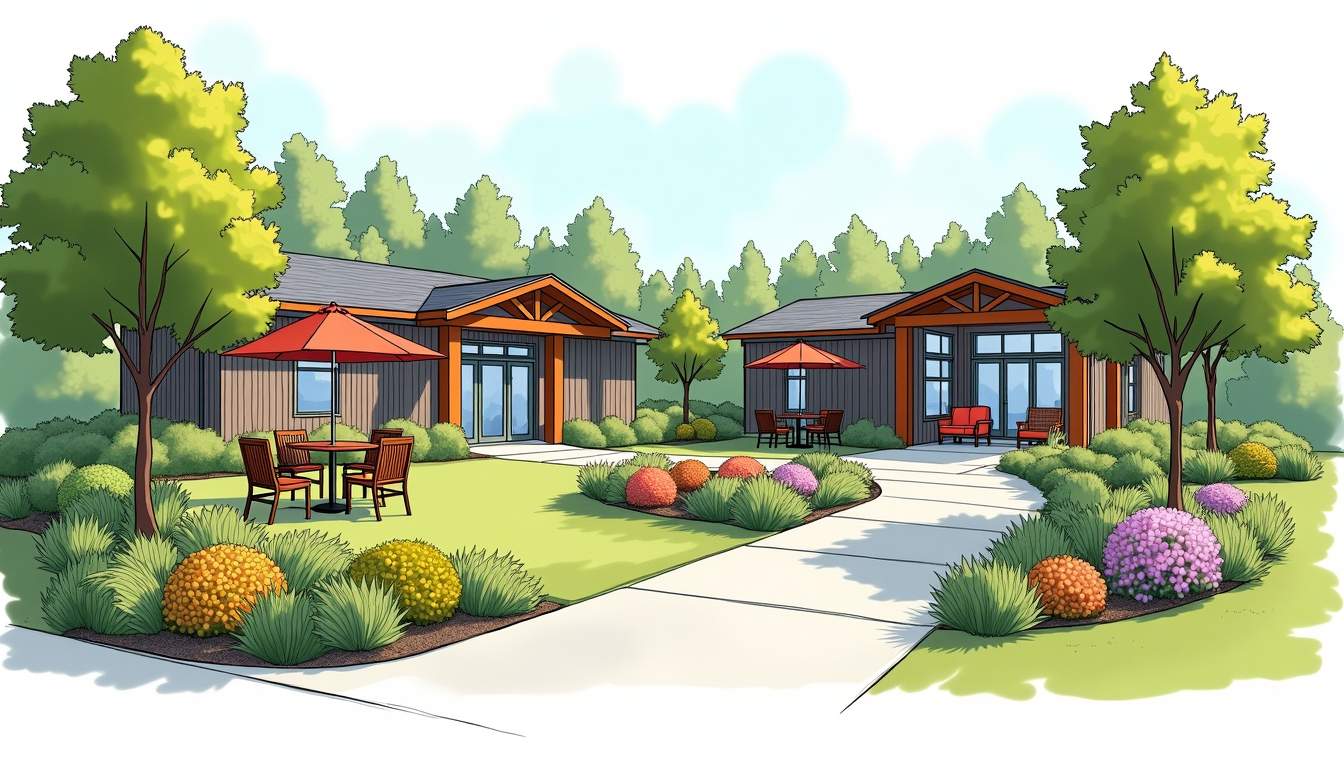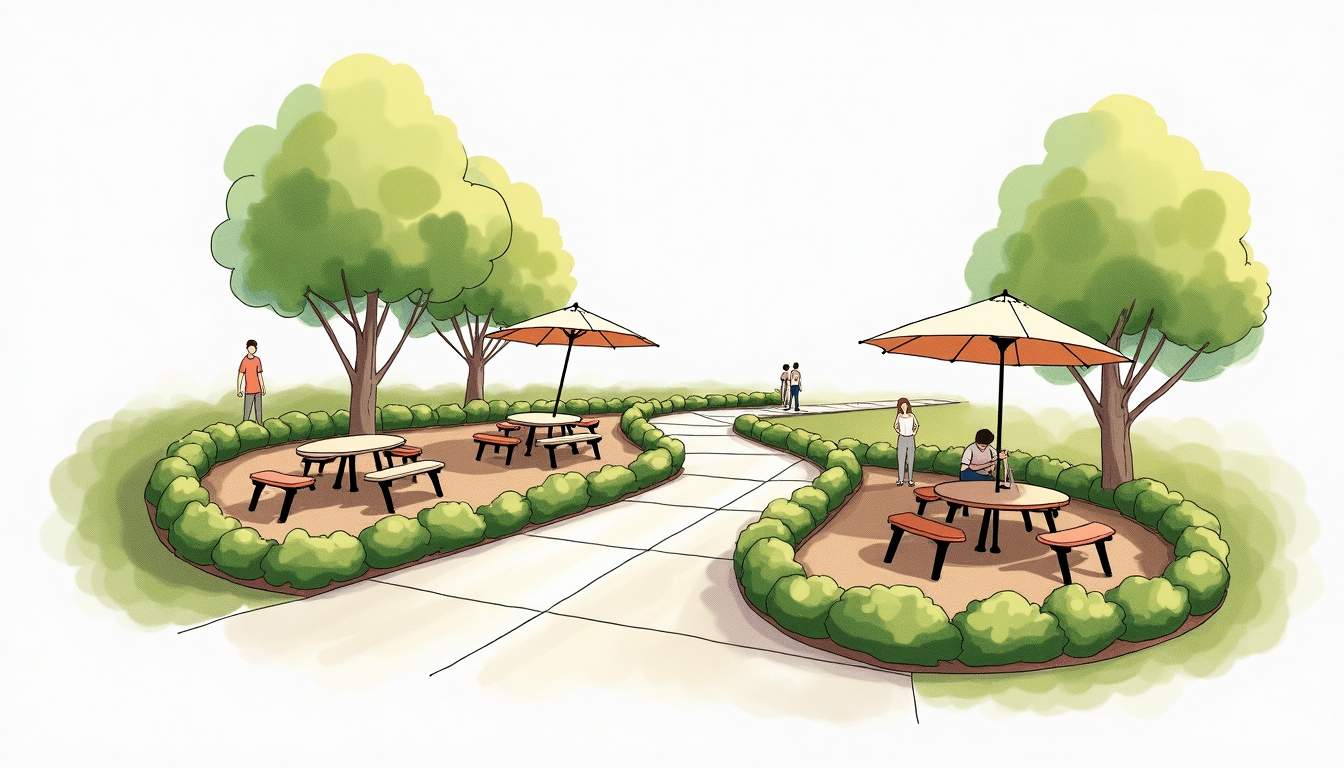
Tennessee National is more than a neighborhood; it is a place where friendships take root, grow, and endure. Nestled amidst rolling fairways, meandering walking trails, and shared spaces designed for connection, this community attracts people from many walks of life who come looking for more than a house — they come looking for belonging.
Shared spaces are the simple architectures of friendship. At Tennessee National, the clubhouse, pool, fitness center, and golf course become natural stages for interaction. A chance chat at the coffee bar, a friendly wave while walking a dog, or partnering up for a round of golf often turns casual acquaintance into something deeper.

Design that encourages lingering — benches, porches, shaded patios, and common seating areas — makes a big difference. When neighbors sit and talk rather than hurry by, conversations have room to move from small talk to shared stories, and those stories are the building blocks of trust and companionship.
Moreover, thoughtful landscaping and strategically placed lighting extend the usability of these spaces into the evening, making it easier for residents to connect after work or during cooler hours. Seasonal decorations and community art installations also enhance the ambiance, giving residents fresh reasons to visit and gather, sparking new interactions and reinforcing a sense of shared pride and identity.
The clubhouse acts as a social hub where events, dinners, and classes take place. Regularly scheduled activities create rhythm in the community calendar, giving residents predictable opportunities to see familiar faces. Whether attending a themed dinner, a lecture, or a holiday celebration, participation in clubhouse events is often the first step toward forming a friend group.
The clubhouse also fosters intergenerational connections by offering a variety of programs tailored to different age groups, such as art workshops for seniors and fitness classes for younger adults. This diversity in programming encourages residents to expand their social circles beyond their immediate peers, helping to weave a tightly knit communal fabric where all feel included and valued.
Outdoor amenities invite informal interactions that can be remarkably powerful. Pickleball courts, walking trails, and community gardens are places where people gather with a common interest. Shared activity lowers social barriers; when exercise, gardening, or a game is the focus, friendships develop naturally around a shared passion.
Beyond physical activities, these spaces often serve as venues for spontaneous gatherings — from impromptu picnics to neighborhood book swaps. Regularly hosted outdoor workshops and seasonal festivals tap into the natural environment, transforming everyday spaces into lively communal hubs that nurture ongoing social engagement and a genuine sense of belonging.
Interest-based groups provide clear pathways for people to meet others with similar tastes and priorities. Clubs centered on gardening, art, wine, bridge, book clubs, or fitness often have regular meetings, which makes building rapport easier because of repetitive encounters and a shared purpose.

Starting a new interest group can be surprisingly easy and often welcomed. Communities that support resident-organized clubs typically provide meeting spaces and promotional channels. Proposing a new club in a community newsletter, posting a sign-up sheet in the clubhouse, or using a resident app can bring together like-minded neighbors who otherwise might never cross paths.
Successful groups make room for varying levels of participation and welcome newcomers. A chess club that offers casual play nights alongside competitive sessions, or a running group that includes walkers and joggers, helps more residents feel comfortable joining and staying involved.
Neighborhoods that encourage intergenerational interaction tend to be stronger. Tennessee National attracts families, professionals, retirees, and seasonal residents. By creating spaces and programming that appeal across age groups, the community benefits from the energy of youth and the wisdom of experience.
Events such as community picnics, mentorship programs, and shared volunteer projects allow different age groups to collaborate. When younger residents teach technology skills to older adults, or when retirees read to children at a community holiday event, both sides gain perspective and genuine human connection.
Neighborhoods that host family nights, youth sports clinics, and art workshops provide natural contexts for parents to meet each other, form playdate networks, and build friendships rooted in shared parenting experiences. These kinds of relationships often endure beyond the years that children are young.
Lasting friendships don’t always form by accident. Intentionality helps. Schedules that include regular social rituals like weekly coffee groups, monthly potlucks, or neighborhood clean-up days create recurring opportunities for connection that build momentum over time.
Rituals create a comforting predictability. A Saturday morning walking group, for instance, means that residents will see each other regularly, share life updates, and develop a sense of continuity. Over months and years, those repeated interactions become the scaffolding for deeper friendship.
Simple acts such as inviting a neighbor over for a barbecue, offering to pet-sit, or dropping off cookies during the holidays help convert acquaintance into trust. These small efforts communicate care and availability — two essential ingredients of long-lasting relationships.
Effective communication platforms keep neighbors engaged and informed. Whether through a community website, email newsletters, bulletin boards, or resident apps, staying in touch sustains social energy and helps people move from one-time meetings to ongoing involvement.
Digital communication should be used to enhance, not replace, face-to-face connection. Messaging groups, event RSVP tools, and forums for shared interests can streamline organizing and keep residents updated on upcoming activities, giving people more chances to show up in person.
Healthy online forums require clear norms to remain welcoming. Community guidelines that encourage respectful dialogue, discourage spam, and protect privacy help ensure that digital spaces facilitate real-world friendships rather than causing friction.
Working together toward a common purpose deepens bonds quickly. Volunteer initiatives — from beautification projects to supporting local schools and food drives — allow neighbors to see each other’s values in action, building trust and mutual respect.
Community-driven projects that deliver visible outcomes strengthen pride and a sense of ownership. Completing a project together provides tangible proof of collective effort and leaves a legacy that continues to remind participants of their shared experience.
Taking on volunteer leadership roles can accelerate relationship building because it places residents in positions that require collaboration, coordination, and communication. Leaders who rotate responsibilities make space for new voices and help keep the social fabric inclusive.
How a community welcomes newcomers sets the tone for future friendships. Thoughtful onboarding — a welcome packet, a neighbor-hosted orientation, or a casual meet-and-greet event — can turn the disorientation of moving into the beginning of an enduring social network.
Small gestures are effective: a neighbor’s invitation to coffee, a guided tour of the community amenities, or an introduction to social groups help new residents feel seen and included. Follow-up is key — a single introduction is less effective than a series of small contacts over the first few months.
Some communities adopt buddy systems, pairing new residents with long-term neighbors who can answer questions and make introductions. These mentorships often evolve into friendships because they start with utility but grow through shared time and experiences.
Relationships require maintenance. Regular check-ins, shared experiences, and respect for personal boundaries keep friendships healthy. Healthy communication about expectations — whether for time investment, shared responsibilities, or privacy — helps relationships last.
Close neighborhoods can blur the line between community and privacy. Good friendships respect both togetherness and independence. Establishing clear boundaries around visiting times, noise, and shared resources prevents resentment and supports long-term companionship.
Disagreements are inevitable. Communities that encourage direct, respectful communication and offer informal mediation when needed help neighbors resolve conflicts before they escalate. Apologies and forgiveness are social lubricants that prevent small issues from damaging long-standing relationships.
Concrete stories make abstract ideas tangible. Consider the neighbor who found a running partner after joining a Saturday morning group, or the couple who discovered a shared love of painting in a community art class and now host monthly creative nights. These stories often start small — a shared smile, a repeated hello — and grow into enduring friendship.

For many residents, neighbors gradually become members of an extended chosen family. They celebrate milestones together, support each other through challenges, and share traditions. A neighborhood where people look after one another is one where friendships are most likely to last.
Taking the first step can be the hardest part. Start small: attend one community event this month, introduce yourself to a neighbor you’ve seen around, or sign up for a club. Consistency matters more than grand gestures; showing up regularly is the most reliable way to build trust and familiarity.
Make it a manageable goal to deepen one relationship at a time. Invite someone for coffee, offer help with a small task, or join a shared-interest group. Small, sustained efforts are more effective than sporadic attempts to be social.
Friendships at Tennessee National emerge from a mix of thoughtfully designed spaces, intentional practices, and everyday human kindness. When neighbors create opportunities to meet, work together, and support one another, a culture of lasting connection takes root. Those who invest time, show up consistently, and extend simple acts of hospitality find that what begins as casual camaraderie often becomes the foundation of lifelong friendship.
Discover how life at Tennessee National fosters meaningful connections through thoughtfully designed spaces, engaging activities, and a welcoming community. With luxury amenities including a Greg Norman Signature Golf Course, private marina, waterfront dining, and over 20 member facilities, it’s the perfect place to create lifelong friendships and unforgettable memories. Whether you’re seeking a move-in ready home or a custom build, your new chapter begins here. Schedule a private tour today and experience the vibrant community where lasting friendships take root.